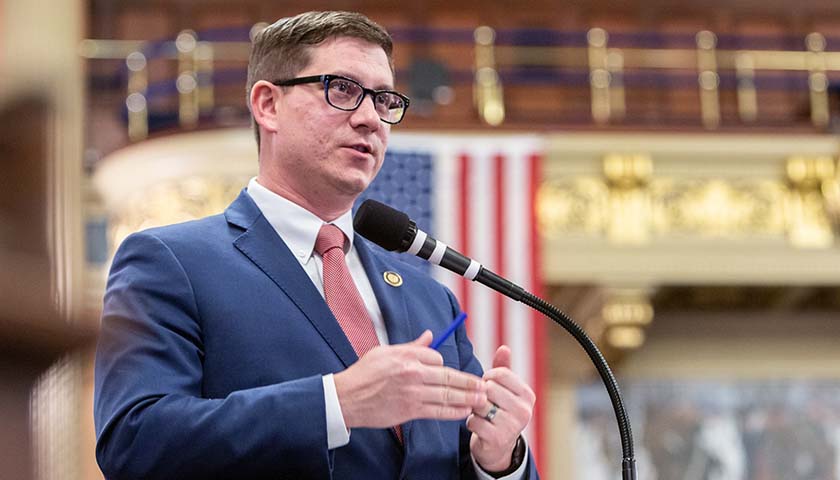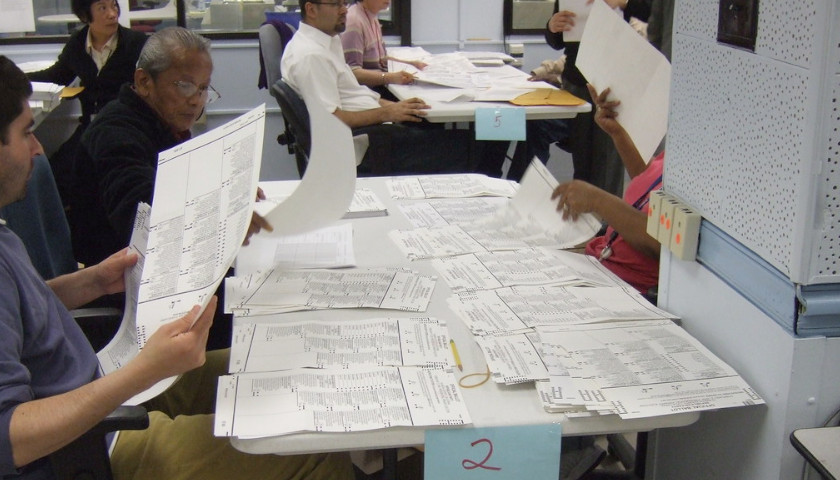Pennsylvania State Rep. Torren Ecker (R-Abbottstown) believes the guarantee of free and fair elections with secret balloting belongs not only in contests for public office but in votes over labor representation.
This week, he announced plans to introduce an amendment to the Pennsylvania Constitution intended to cement that guarantee in the Keystone State in anticipation of federal legislation aiming to strengthen labor unions.
Ecker, a member of the state House Labor and Industry Committee, has castigated liberal members of Congress for introducing the Protecting the Right to Organize (PRO) Act which would impair the right of workers to cast their votes for or against unionization by secret ballot.
“New legislation at the federal level would undermine the sanctity of secret ballot elections in the workplace,” Ecker stated in a memorandum. “Workplace elections without secret ballot protections leaves the process open to interference, coercion and pressure from employers and organizers who may try and interfere with the vote.”
Ecker was referring to a provision within the PRO Act known as “card check,” an idea prominently debated over a decade ago when it was the centerpiece of the Employee Free Choice Act (EFCA). That bill passed the Democrat-run U.S. House of Representatives in 2007 but its support with Congress was still too soft to advance it to the White House after Barack Obama—who supported it—became president in January 2009. When Republicans gained a congressional majority in both chambers two years later, card check and EFCA’s other pro-union components effectively died.
Now that Democrats have regained the presidency and the federal legislature, card check has come back to the fore of their agenda. The concept, which supporters also refer to as “majority sign-up,” would dispense with secret-ballot elections after a majority of a company or department’s employees sign authorization cards indicating an interest in joining a union. The card signing would essentially become the unionization election.
The problem with that, say Ecker and other card-check critics, is that labor organizers will be able to see whether an individual worker welcomes or opposes unionizing. Many fear this will allow union officials to overawe employees into backing union affiliation.
Labor organizations have already succeeded in getting many states to adjust laws regarding stalking, trespassing and violent threats in a way that advantages unions seeking to organize workforces. Only as recently as 2015 did Republican state lawmakers persuade Pennsylvania’s Democratic Gov. Tom Wolf to eliminate elements of Pennsylvania law that exempted unions from such laws. State statute actually used to declare that the commonwealth’s forbiddance of stalking “shall not apply to conduct by a party to a labor dispute.”
According to a report from the U.S. Chamber of Commerce, “As many workers and employers know all too well, aggressive corporate campaigns often rely on tactics such as trespassing, intimidation, and even stalking—actions that would be illegal under any other circumstances.”
While Pennsylvania unions no longer have formal sanctions to conduct themselves in such a manner, opponents of card checks have stressed what they believe is the importance of according workers all the privacy of a secret ballot so that intimidation is not a possibility. To Ecker, one’s right to confidentially decide who represents him or her in the workplace is as important as one’s right to confidentially choose one’s public officials.
“Recent discussion surrounding election integrity brings to light many concerns—among them, the right to have one’s vote counted secretly,” the representative said. “Just as citizens want elections to be conducted freely, fairly and anonymously, employees participating in workplace elections deserve the same right.”
– – –
Bradley Vasoli is a reporter at The Tennessee Star and The Star News Network. Follow Brad on Twitter at @BVasoli. Email tips to [email protected].
Photo “Torren Ecker” by PA State Rep. Torren Ecker.





